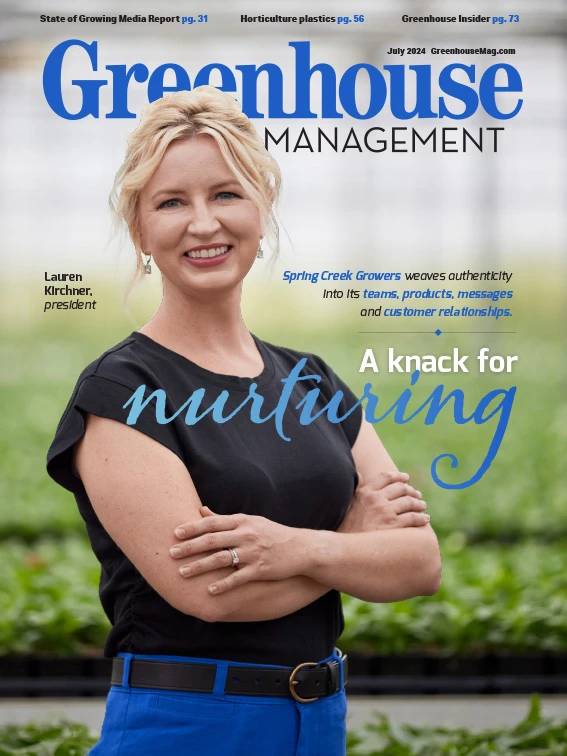
"We’ll always have Paris…”
I have primarily focused on tropical plants over the past two years of writing these Flora Exotica articles. My idea for the column was to educate readers about some of the incredibly beautiful and often rare plants that were emerging into the marketplace in western horticulture. However, there are many rare and beautiful hardy perennials to be coveted by plant nerds such as myself. This article is as much about two rare and beautiful people as it is about a plant. Ernie and Marietta O’Byrne, owners of Northwest Garden Nursery near Eugene, Oregon, are two of the most wonderful people I’ve ever known. Their book, "A Tapestry Garden," is a horticultural masterpiece decades in the making. They are best known for their Winter Jewels Hellebores collection, which they hybridized over the last 30 years.
Marietta has also been hybridizing other genera, including Podophyllum, Trillium, Paris and many more. I had never seen Paris before encountering it in the O’Byrne garden. Specifically, Paris luquanensis is an exquisite garden gem with lovely silvery veining on dark green leaves. It grows only 5 to 6 inches high, with up to eight leaves arranged around a central axis. A purple stem rises from the central axis of the plant to a flower consisting of a purple ovary surrounded by six bright green leaflets that each have a long, yellow, string-like petal. When pollinated, bright red fruit will form.

P. luquanensis is native to the southern Sichuan and north Central Yunnan provinces in China. It grows in moist shade to partial shade in rich, well-drained soil. It can be propagated by seed or from rhizome divisions. In addition to its value horticulturally, Paris has long been used in Chinese medicine to treat liver, ovarian and bladder cancer, as well as Alzheimer’s disease.
Paris is a terribly slow grower. It takes years to produce a sellable 4-inch pot. For many large growers who rely on quick turns, that’s a dealbreaker, which is why it's most likely found only in specialty nurseries. However, I would happily pay more than I’d care to admit publicly for the opportunity to buy one of these jewels, so there may be a good opportunity here for some skilled niche growers.

Explore the July 2024 Issue
Check out more from this issue and find your next story to read.
Latest from Greenhouse Management
- Anthura acquires Bromelia assets from Corn. Bak in Netherlands
- Top 10 stories for National Poinsettia Day
- Langendoen Mechanical hosts open house to showcase new greenhouse build
- Conor Foy joins EHR's national sales team
- Pantone announces its 2026 Color of the Year
- Syngenta granted federal registration for Trefinti nematicide/fungicide in ornamental market
- A legacy of influence
- HILA 2025 video highlights: John Gaydos of Proven Winners





